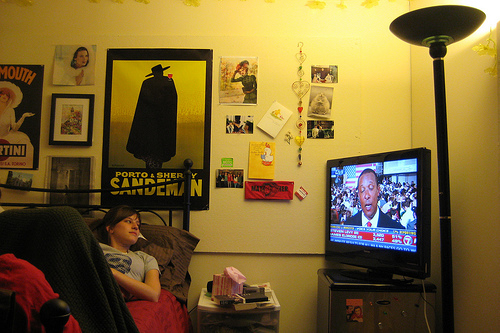
Watching TV Is A Good Way To Relax Before Bed
Watching TV is associated with negative cognitive shifts in children as well as in adults. Watching TV for a long time increases anxiety and material aspirations. According to the journal of sleep research, the visual cues induce significant neurochemical alteration in the brain. Violent, scary and repulsive imagery tend to increase serum levels of cortisol which is the hormone of fright, flight and fight. It also reduces the total production of serotonin which is the feel good chemical of the brain. This shift towards active cerebral functionality discourages sleep and may interfere with the normal sleep pattern. Programs targeted at the adult population induce profound sleep disturbances in children.
- Important notification about information and brand names used in this slideshow!
- Photo courtesy of Jue Wang by Flickr : www.flickr.com/photos/cremeglace/3003741193/
- Journal of sleep research

Sleep In Men And Women
Men and women have different sleep characteristics. Overall, the quality of sleep is considered to be low in females due to frequent night-time waking, longer sleep latency, less napping and increased use of anxiolytics and sedatives to induce sleep. Women also have frequent sleep disturbances at a lower stimulus threshold. Males show an increased frequency of daytime sleeping and napping. It is interesting to note that with age, males appear to have progressively poorer sleep compared to females. There is higher incidence of insomnia in females. Unemployment, alcohol use, low economic stability are common risk factors for insomnia in both sexes while divorced/widowed and being a housewife are specific to females.
- Important notification about information and brand names used in this slideshow!
- Photo courtesy of jaimelondonboy by Flickr : www.flickr.com/photos/jaimelondonboy/2415094304/
- Journal of sleep research

More Sleep Is Always Better
Sleeping too much may be due to laziness but it may also be due to clinical conditions like hypersomnia, obstructive sleep apnea and narcolepsy. Diabetes, overweight, obesity and chronic headaches are also associated with longer sleep duration. Medications can cause excessive sleep (anti-histamine, benzodiazepines and barbiturates). Therefore the cause of oversleeping needs to be addressed first. Oversleeping carries an increased risk of metabolic disorders like diabetes, obesity, overweight, and hypercholesterolemia. Obesity increases the risk of vascular events like stroke and heart attacks. Psychiatric disorders like depression are directly linked to excessive sleep. Oversleeping can alter the neurochemical balance of the brain resulting in chronic headaches.
- Important notification about information and brand names used in this slideshow!
- Photo courtesy of Ethan Hickerson by Flickr : www.flickr.com/photos/ethanhickerson/4497123711/
- Journal of sleep research
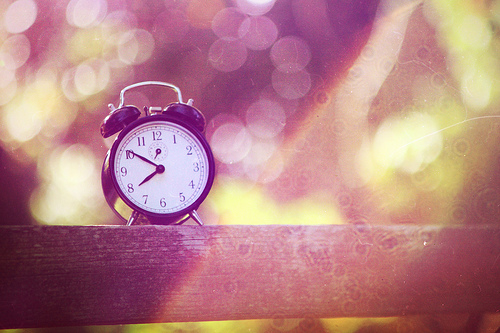
Everyone Needs Eight Hours Of Sleep
Not everybody needs eight hours of sleep. Newborn babies sleep all the time while the elderly do not need much sleep. The average sleep duration of a 6 months old baby is around 15 hours while a 16 year old boy will sleep for around 8 hours. The duration of sleep, bed time and rapid eye movements during sleep are related to the daily variation of body temperature (circadian rhythm) and not the duration of wakefulness. This is why even after a long sleepless duration we feel refreshed with our usual amount of sleep. While 8 hours is not the minimum, both sleep deprivation and oversleeping are known risk factors for diabetes.
- Important notification about information and brand names used in this slideshow!
- Photo courtesy of Βethan by Flickr : www.flickr.com/photos/beth19/4721798240/
- Journal of sleep research
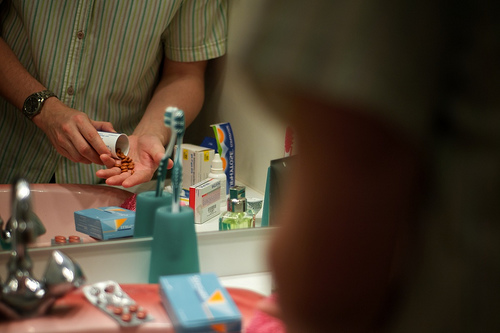
Sleeping Pills Are The Only Way To Combat Insomnia
Drug treatment is actually the last resort. Relaxation techniques like regular deep breathing, imagery, meditating and progressive relaxation of muscles can be used to promote sleep. Cognitive behavioral therapy and positive thinking exercises need professional guidance because these are validated clinical methods. Lifestyle changes are also essential to achieve better sleep hygiene. Avoiding daytime napping, having a regular bed time, using the bedroom for sleep and sex only, avoiding heavy meals just before sleep, avoiding TV before sleep, avoiding caffeine containing drinks before bed, having a cold shower before bed, using dim lights in your bedroom and soundproofing the room to avoid external disturbances are some effective sleep induction methods. Some people find that light relaxing music or the sound of ocean waves help them sleep.
- Important notification about information and brand names used in this slideshow!
- Photo courtesy of nicodeux by Flickr : www.flickr.com/photos/nicodeux/3235281880/
- Journal of sleep research

Drinking A Glass Of Wine Before Bed Is Helpful
When people drink and fall into bed they seem to sleep soundly. According to the journal of alcoholism, clinical and experimental research, alcohol does bring sleep quickly. But the downside is that alcohol-induced sleep is short lasting. You will sleep well during the first part of the night, but due to relaxation of muscle of breathing you will wake up with shortness of breath later on. This interferes with the regenerative processes going on in the brain and muscles. Alcohol-induced sleep is associated with reduced entry into deep sleep or rapid eye movement sleep (REM sleep). Consumption of alcohol need to be stopped at least an hour before sleep.
- Important notification about information and brand names used in this slideshow!
- Photo courtesy of Paula B. by Flickr : www.flickr.com/photos/daysleeper_/3879999962/
- Journal of sleep research

The Body Can Go Without Rest
The body needs glucose, proteins and lipids as substrates to extract energy. The initial burst of activity uses up the ATP (high energy compound immediately available for energy). Then glucose is utilized. The body has limited stores of glucose. When immediately available glucose is used up, glycogen stores are used. Then fatty acids and amino acids are used as substrates. Synthesis of new glucose occurs and fat is mobilized. When the energy demand is still higher, muscle tissue is broken down to produce energy. During sleep the body switches to the anabolic phase where synthesis exceeds breakdown. Food is digested and transported to various tissues to repair the wear and tear and to replace exhausted stores.
- Important notification about information and brand names used in this slideshow!
- Photo courtesy of Stefan Georgi by Flickr : www.flickr.com/photos/onesevenone/7612691554/
- Journal of sleep research
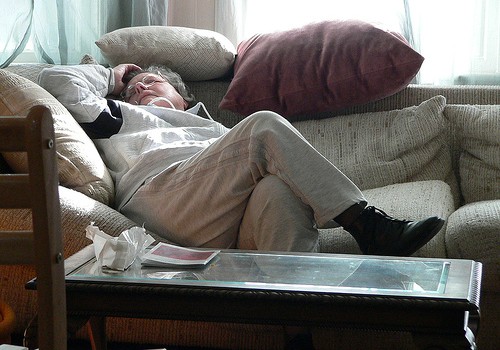
Naps Disrupt Your Regular Sleep Schedule
Most mammals sleep for short periods throughout the day (polyphasic sleeping). But habitually or naturally, a monophasic sleep pattern has evolved in humans. We sleep during the night and stay awake during the day, though Albert Einstein seemed to value an afternoon nap. Naps taken too late in the day can disrupt the usual bed time because the body is not ready to sleep. Therefore, naps should be planned. Planned napping can avoid early tiring. Naps taken due to excessive tiredness and an inability to continue working are called emergency naps. Driving and heavy machinery use may lead you to need a nap to avoid lapses in concentration. Habitual naps are taken same time each day. Habitual and planned naps do not interfere with usual sleep cycle while emergency naps might.
- Important notification about information and brand names used in this slideshow!
- Photo courtesy of Bev Sykes by Flickr : www.flickr.com/photos/basykes/139877153/
- Journal of sleep research
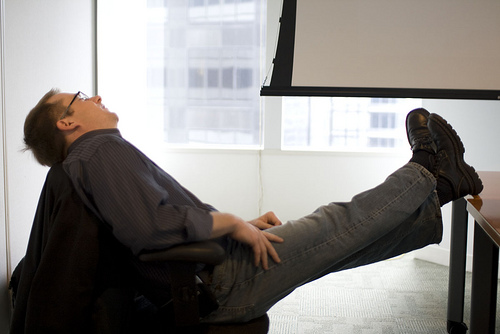
You Can Make Up For The Lost Sleep
You cannot make up for lost sleep because of the habitual sleep cycle and effects of oversleeping. Even after a long duration of wakefulness we feel refreshed after the routine duration of sleep. Sleep quality and duration depends on the daily body temperature rhythm and not on the duration of wakefulness. The additional sleep we try to get remains patchy and intermittent because the body is not ready to continue sleeping. Effects of oversleeping are very serious, therefore it seems a poor deal to try to catch up. Excessive sleep is linked to a high risk of diabetes, high blood cholesterol level, overweight, obesity, heart diseases, stroke and depression.
- Important notification about information and brand names used in this slideshow!
- Photo courtesy of Jason Ernst by Flickr : www.flickr.com/photos/jernst/2408509876/
- Journal of sleep research
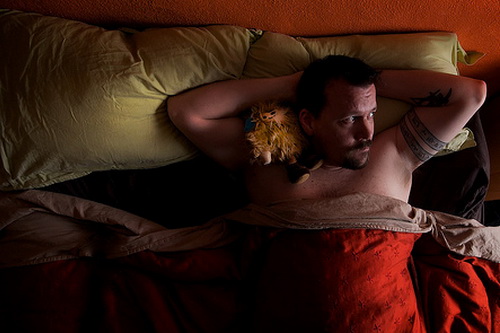
If You Can't Sleep, Just Rest In Bed
Resting while awake and sleeping are two different things entirely. If you feel you cannot go to sleep, it may be because your body is not ready for sleep. You need to review what keeps you from sleeping and address that first rather than lying in bed waiting for sleep. Sleep is characterized as “a form of partial unconsciousness”. There are measurable changes in metabolism and neural function during sleep. Electroencephalograms record brain waves during sleep and wakeful states. Sleep-related brain waves are related to a diminished neural activity, replenishment of neurotransmitters and storage within vesicles in axon endings. To achieve this replenishment stage, you need to sleep and it is not enough to just rest in bed.
- Important notification about information and brand names used in this slideshow!
- Photo courtesy of bark by Flickr : www.flickr.com/photos/barkbud/4388300935/
- Journal of sleep research


_f_280x120.jpg)


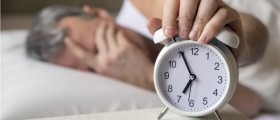

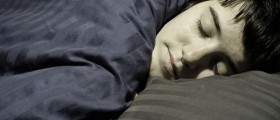

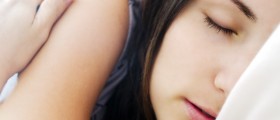


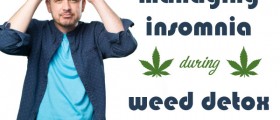
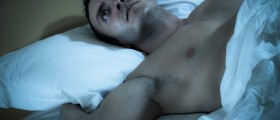
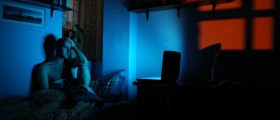



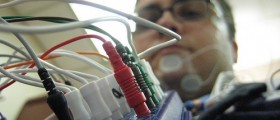



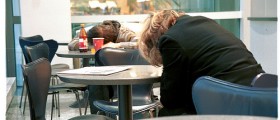

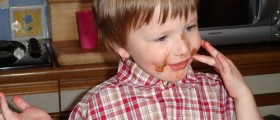


Your thoughts on this
Loading...